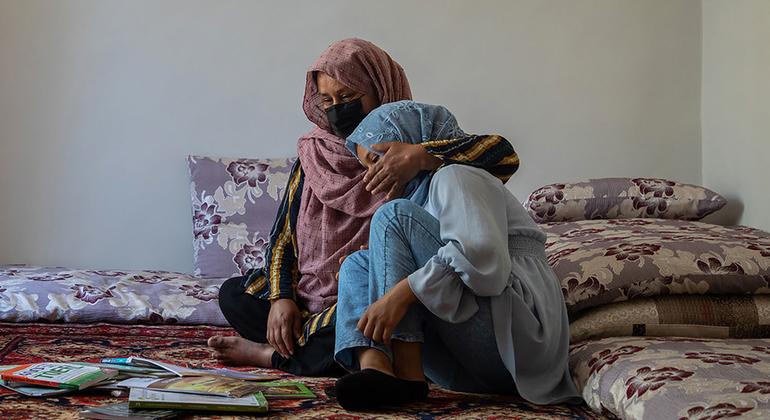
On Thursday, ICC Prosecutor Karim Khan applied for arrest warrants for two senior Taliban officials, Supreme Leader Haibatullah Akhundzada and Supreme Court Chief Justice Abdul Hakim Haqqani.
They are charged with crimes against humanity based on gender-based persecution under the Rome Tribunal Regulations. The law establishes the obligation of all Member States to exercise criminal jurisdiction over those responsible for international crimes.
“These applications recognize that Afghan women and girls, as well as the LGBTQI+ community, face unprecedented and unconscionable continued persecution by the Taliban,” Khan said in a statement. Ta.
Since taking power in Afghanistan in 2021, the Taliban has implemented a series of repressive measures that systematically disenfranchise women, including banning them from employment, public spaces, and education after the age of 12.
The ICC Prosecutor stressed that these actions constitute a serious deprivation of fundamental rights (rights protected under international law), including physical autonomy, freedom of expression, and access to education.
Landmark decision against impunity
This is the first time the ICC has applied for an arrest warrant regarding Afghanistan.
Khan said these applications are supported by a wide range of evidence, including expert testimony, forensic reports and numerous statutes issued by de facto authorities.
The ICC’s Afghanistan team, under the supervision of Deputy Prosecutor Nazzat Shameem Khan and Special Assistant on Gender and Discrimination Crimes Lisa Davis, has played a key role in investigating these allegations, the prosecutor continued.
These serious deprivations of fundamental rights were committed in conjunction with other Rome Statute crimes, Khan explained.
“Any perceived resistance or opposition to the Taliban has been and continues to be brutally suppressed through crimes including murder, imprisonment, torture, rape, other forms of sexual violence, enforced disappearances, and other inhuman acts. “It has been done,” he said.
He stressed that the Taliban’s interpretation of Sharia (the Islamic legal system derived from the Quran) cannot be used to justify such violations of fundamental human rights.
Victim resilience
“In making these applications, I would like to thank the incredible courage and resilience of the Afghan victims and witnesses who cooperated with my office’s investigation,” Khan said.
“We remain unwavering in our determination to ensure that they are not forgotten, and we will demonstrate through our work, through the effective and fair application of international law,” that “every life deserves They have equal value,” he said.
The prosecutor also expressed gratitude to Afghanistan’s civil society and international partners for their support.
next step
The ICC’s Pre-Trial Chamber will now decide whether these arrest warrant applications establish reasonable grounds to believe that the named persons have committed an alleged crime.
“If a judge issues a warrant, my office will work closely with the registrar to make every effort to arrest the individual,” Khan said, adding that he plans to make further applications against other Taliban leaders. It was announced that
“Victims and survivors in Afghanistan have been treated unfairly for far too long,” he said.



